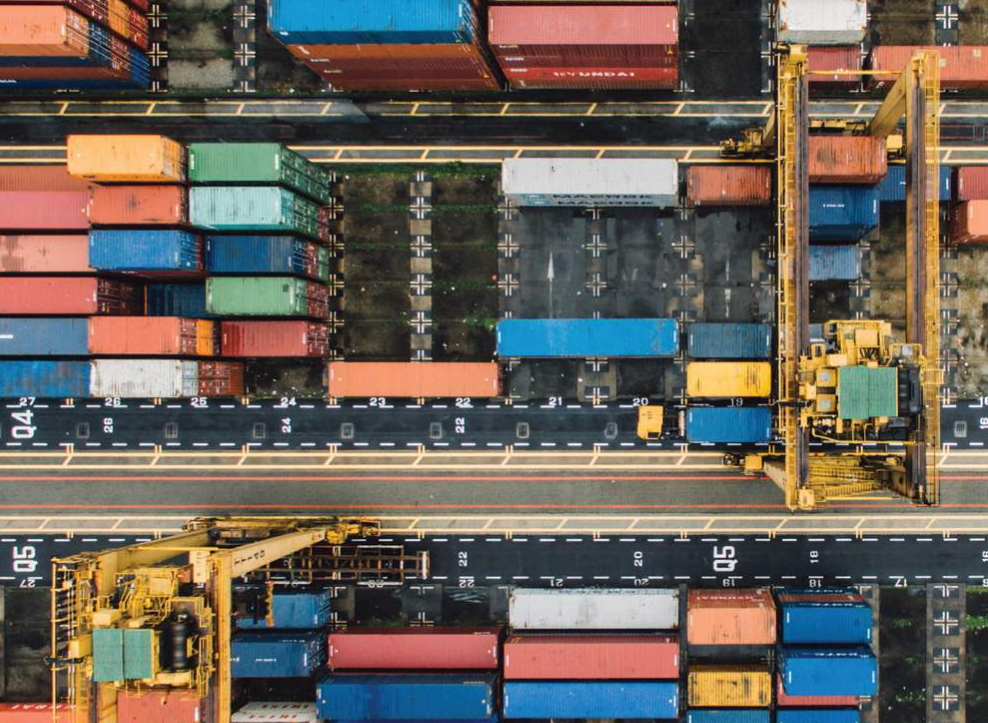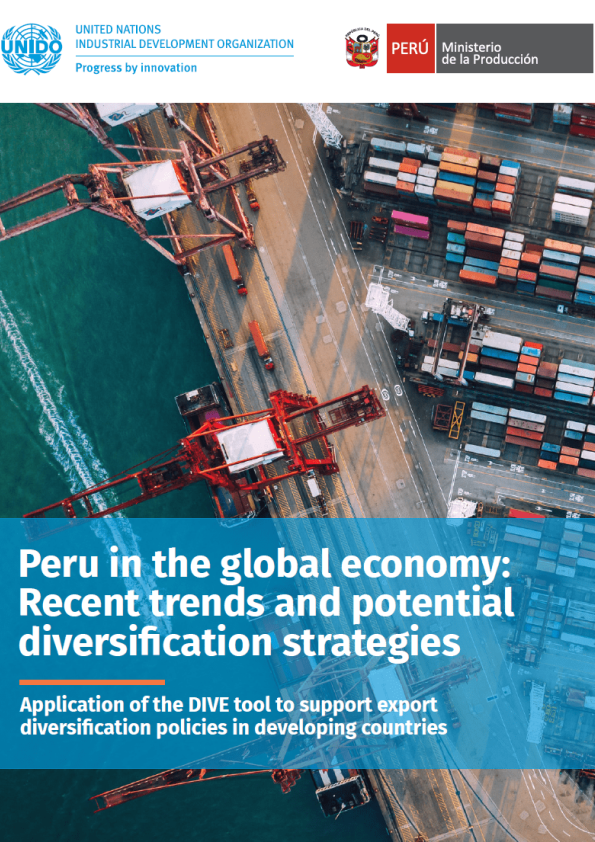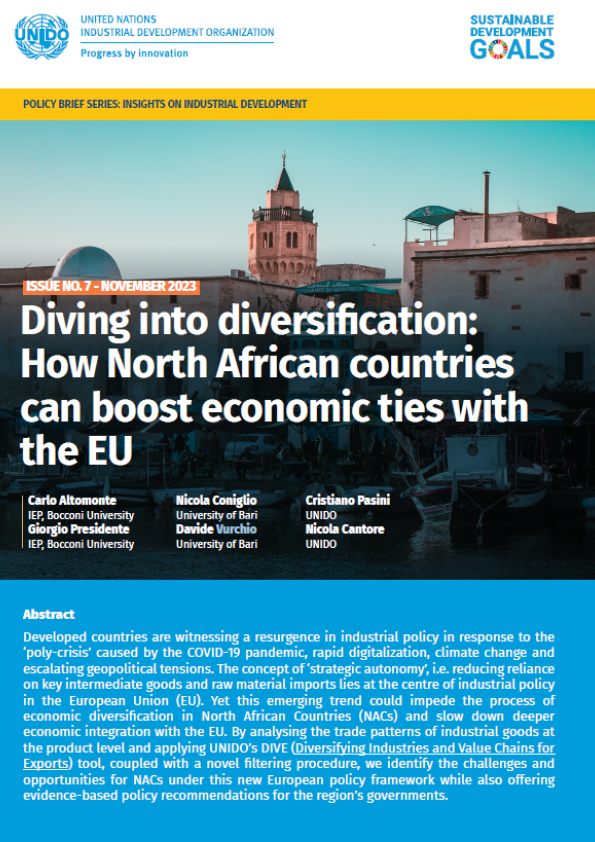
Diversifying and rebuilding the Ukrainian economy - Application of the DIVE tool
2024 | Author(s): UNIDO
#Training Academy
In this report, we apply UNIDO’s tool DIVE (Diversifying Industries and Value Chains for Exports) to help the Ukrainian government select potential targets for vertical and horizontal industrial policies to diversify and strengthen its economic base.


